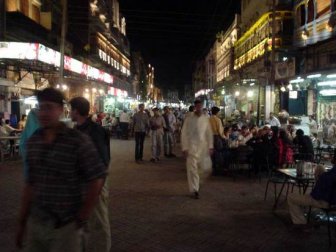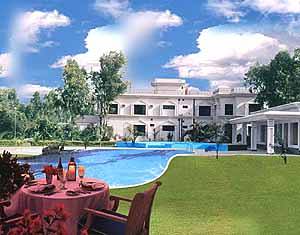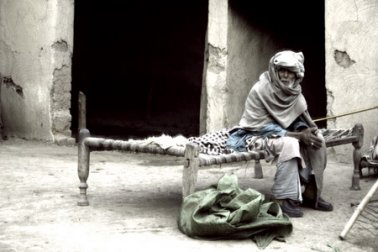Disillusioned Pakistani
The Reluctant Fundamentalist, Mohsin Hamid, 2007
A slender novel exploring the disillusion of a Pakistani Princeton graduate, newly hired New York master of the universe, in love with a wealthy beautiful New York socialite. Did 9-11 start his disillusionment; or was it the mental illness of his lover; or was it the Chilean publisher pointing out the similarities of his career situtation to that of the Christian Janissaries of the Ottoman Empire? The language is engrossing and perceptive as here where he ruminates on New York after 9-11
I had always thought of America as a nation that looked forward; for the first time I was struck by its determination to look back. Living in New York was suddenly like living in a film about the Second World War; I, a foreigner, found myself staring out at a set that ought to be viewed not in Technicolor but in grainy black and white.
Food Street Lahore

He quits his New York job and returns to Lahore. The novel is structured entirely as a monologue by the disillusioned Pakistani given in a Lahore restaurant to a complete stranger, a large silent foreigner, possibly an American spook, who may or may not come to grief at the end of the evening. Masterfully nuanced performance.
Moth Smoke, Hohsin Hamid, 2000
Moth Smoke, titled for the moth’s love of the flame, and written before the military coup d’état of general Pervez Musharraf in October 1999 and before the events of 9-11, was Hamid’s first novel. Set in Lahore at the time of Pakistan’s first nuclear test in May 1998, a time of fear and economic disruption, mixed with pride as Pakistan becomes the worlds first Muslim member of still small nuclear bomb club; the novel explores the effects of monumental corruption on two best childhood friends.
The boys’ fathers were in the military during the West Pakistan – Bangladesh fighting in 1971. One father dies and the other turns to corruption believing that one is either an exploiter or will become the exploited. The father builds a fortune through bribery and kickbacks from foreign corporate contracts then turns to money laundering to sustain and expand his fortune.
When his mother dies the friend’s son becomes an orphan raised by an uncle. The rich father assures the orphan attends the best schools in Pakistan where he associates with his son and other elite children. The orphan applies for college in the States but is unable to get financial aid so he attends college in Pakistan while all his circle of school friends leave for England or the States.
Lahore Country Club

The orphan studies for a doctorate in Pakistan under a radical professor choosing as dissertation subject Mohammad Unis micro credit financing. He drops out to accept a banking job arranged by his friend’s father. He grows increasingly resentful of his job as servant (pretty well paid) to the rich and corrupt and is fired just as his friend returns, sexy wife and child in tow, from a successful career in New York. From a “small fish in a big pond” he immediately becomes a part of the young social elite by virtue of his father’s wealth.
The novel is an account of the orphan’s decline and final destruction while his former friend continue to thrive through his family’s corrupt ways, carrying large sums of money to Switzerland and the Cayman Islands for laundering.
Lahore Charpoy

One of the most compelling sections explores the effects of air conditioning in separating the haves from the have nots in Lahore where summertime temperatures can reach 115 degrees (Just like Phoenix, although the homeless can go to the underutilized downtown public library during the day but only if they do not fall asleep). The orphan finally understands poverty when his power is disconnected for non payment and he is forced to live for the first time as an AC have not.
A street urchan, who knows that air conditioners throw off hot air into the streets is confused by the insistence of the rich that ACs produce cold air.
Manucci realized what all this had to mean. It meant people thought what he called hot air was cold air. So whenever he walked down the street past the back of a protruding AC, he would smile and say, “What cold air it makes. Wonderful.”
Pakistan has too little and notoriously unreliable electric power, not coincidentally because of bribes, kickbacks and shoddy foreign corporate contract work. The power problems are small inconvenience to the elite who use a little of their corrupt gains to buy personal power generators.
The novel changes voices from the orphan, to his friend, to his friend’s father, to his friend’s wife, so we get to see their various lives from their own viewpoint. At first jarring, this technique may be the only way to allow us to feel some empathy for the rationalizations used by each actor for justifying his otherwise reprehensible actions. Its a little like listening to Alfie (Michael Caine in the original movie) rationalize his actions. There are no heroes here.